The north-eastern part of Poland (bordering with the Kaliningrad Oblast) is an area beautifully shaped by the recent glaciations - it consists of chains of moraine hills, deep valleys, and thousands of water reservoirs. There are over three thousand lakes here, many of them connected by a network of canals built mainly in the 19th century.
I spent my vacation a bit further south, but I also made a one-day trip to these areas. The weather was stormy, so instead of relaxing by one of the lakes, I decided with my friend to do a little tour around the area in search of other attractions.
Thanks to this, we were able to see a rather unusual monument for Poland - massive railway viaducts located in Stańczyki, called The Romincka Forest Bridges.
We started by climbing the nearby observation tower to admire the view of the postglacial valleys and lakes from a height of 15 meters - Smal Dubellus and Big Dubellus.
20-meter tower, the observation platform is at the height of 15 meters.
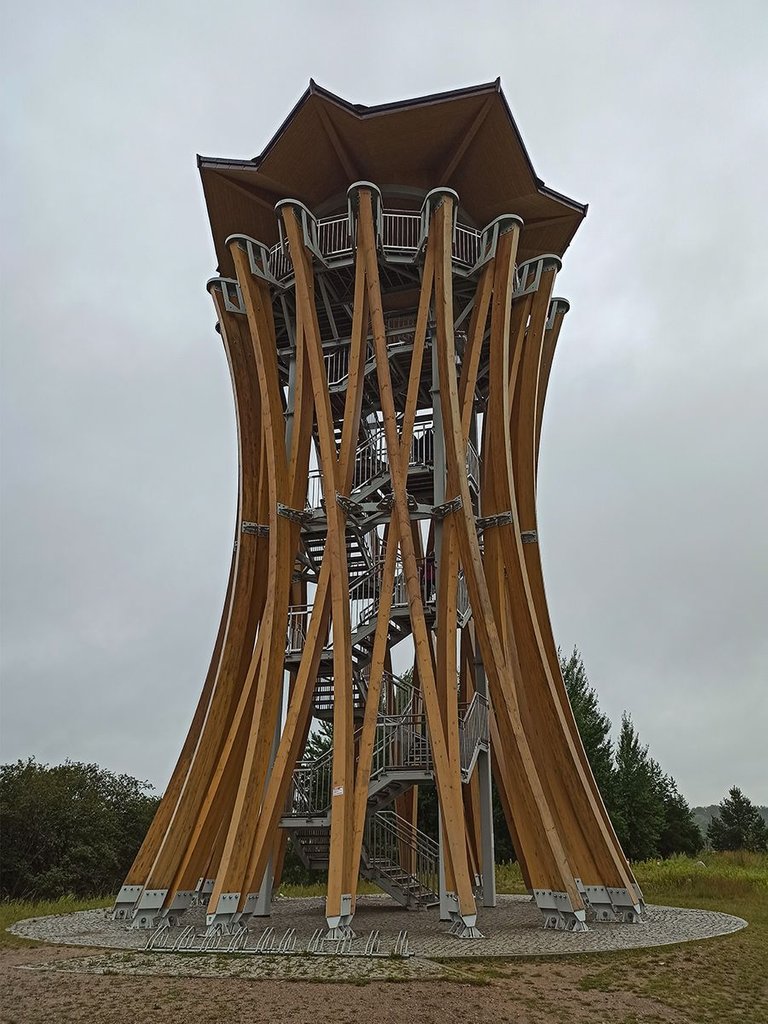
View of part of the valley.
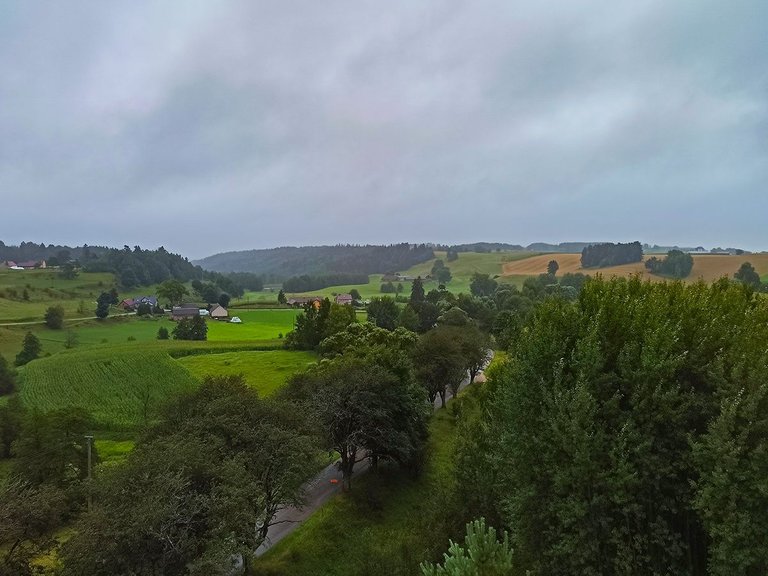
An interesting story is associated with the Small Dubellus lake. In 1926, during a violent storm, the lake exploded, scattering tons of mud and sludge around. The lake disappeared under a layer of mud for a few months, only to return to its original form over time. So far, scientists have not confirmed 100% what was the cause of this event. They estimate that there was an explosion of methane accumulated in the peat bottom.
The "explosive" lake - Small Dobellus
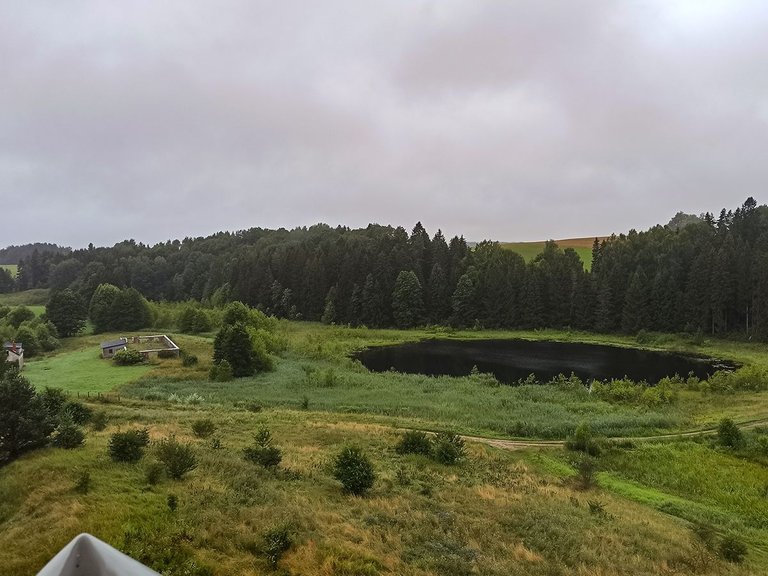
Big Dubellus
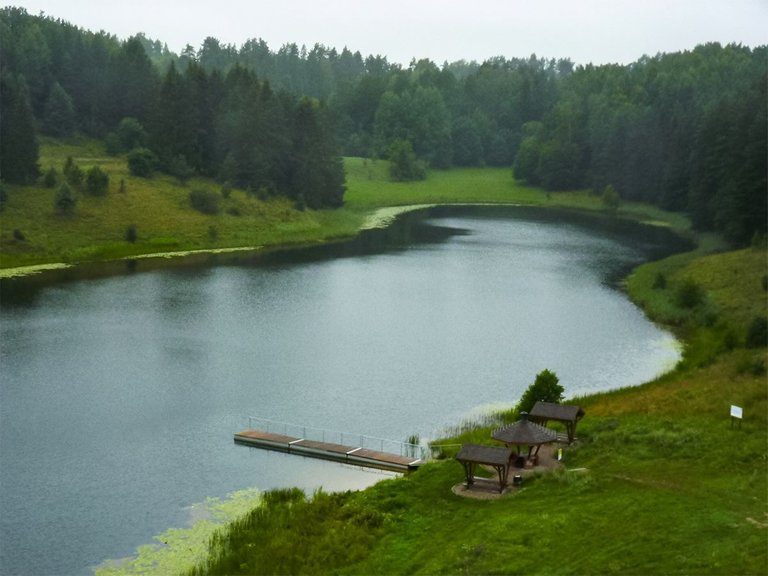
The lakes are a remnant of the glacier. After the glacier's retreat, vast chunks of ice left in the valley gave rise to the lakes. As I mentioned, there are thousands of similar reservoirs in this part of the country.
From the tower, you can also see a fragment of the viaducts that I wanted to visit.
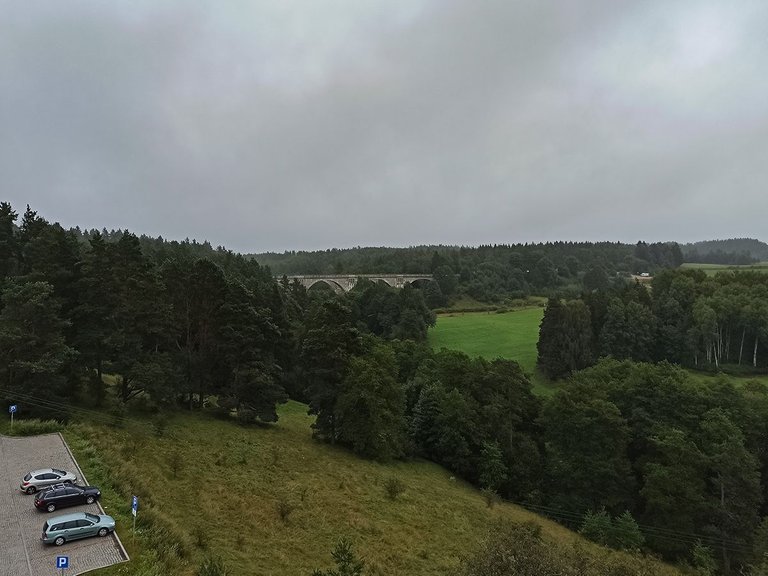
They made a great impression even when viewed from a distance; it was time to take a closer look.
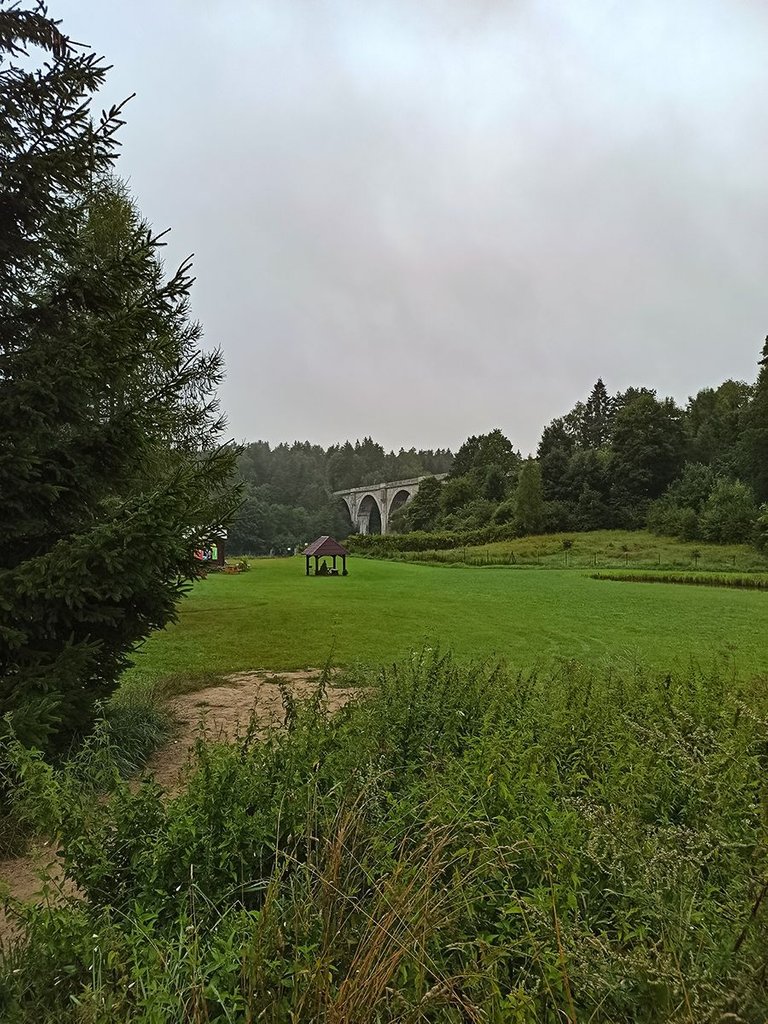
Bridges connect the edges of the valley formed by the glacier. The valley is relatively narrow but very deep (up to 60 meters). At its bottom flows a small river Błędzianka. The valley's nature influenced the appearance of the viaducts built here in the years 1912 - 1926 - they are very high.
Before 1918, Poland wasn't even on the map of Europe, and after World War I, the country's borders looked different than today. This area (part of East Prussia) belonged to Germany. So the viaducts are the work of German builders, although Italians created the project. Probably hence the similarity to Roman aqueducts. The bridges in Stańczyki are often compared to the ancient aqueduct in Pont du Gard.
The northern bridge was built in 1912-1914, and the southern one in 1923-1926. In the end, only one was put into service as part of the East Prussian railway line in 1927. It was an excellent attraction for travelers, who could admire the impressive view of the surroundings from over 36 meters.
After World War II, Prussia was divided, and Stańczyki became part of Poland. The victorious Soviets demolished the railway line and transported it to the Soviet Union for melting down. Fortunately, the stone bridges have remained, and today we can still admire them.
You can walk freely on both bridges; admission for an adult costs 8 PLN (~2 $).
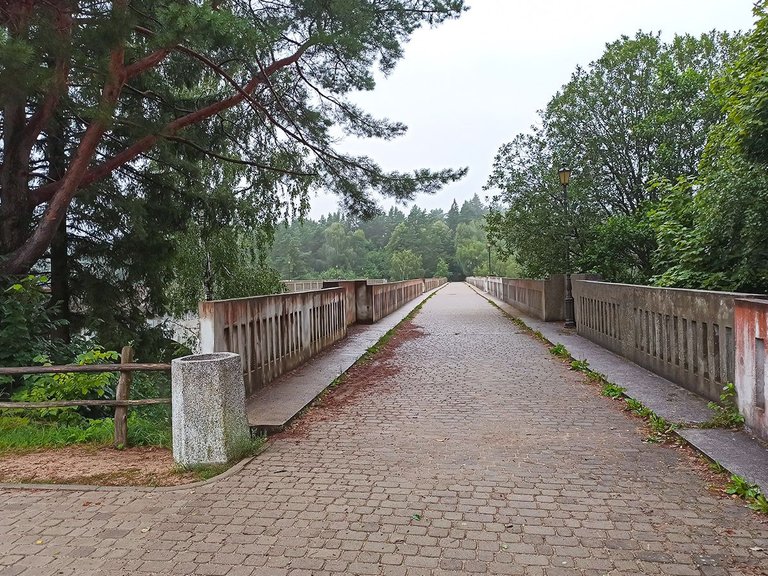
The photos do not even partially reflect the enormity and height of the structure. The bridges are approximately 200 meters long and over 36 meters high. They are huge, but the openwork structure (decorative railings crowning bridges, and slender columns) makes the impression they are light and delicate.
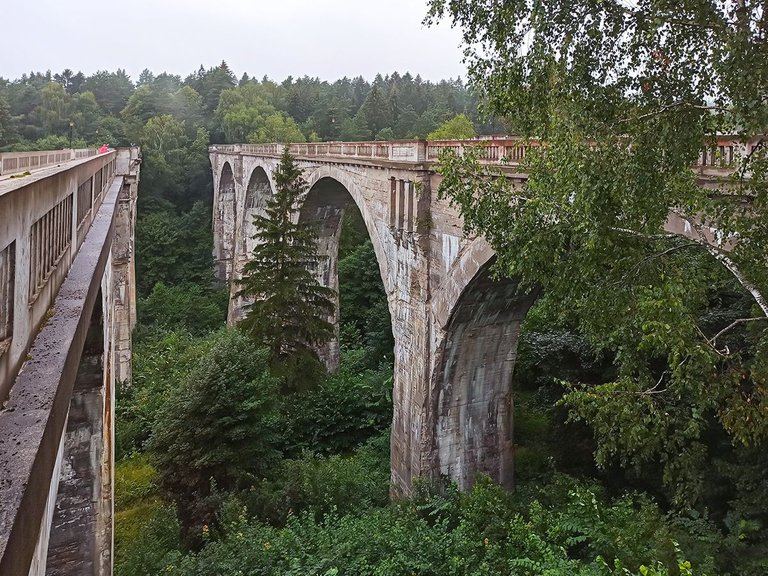
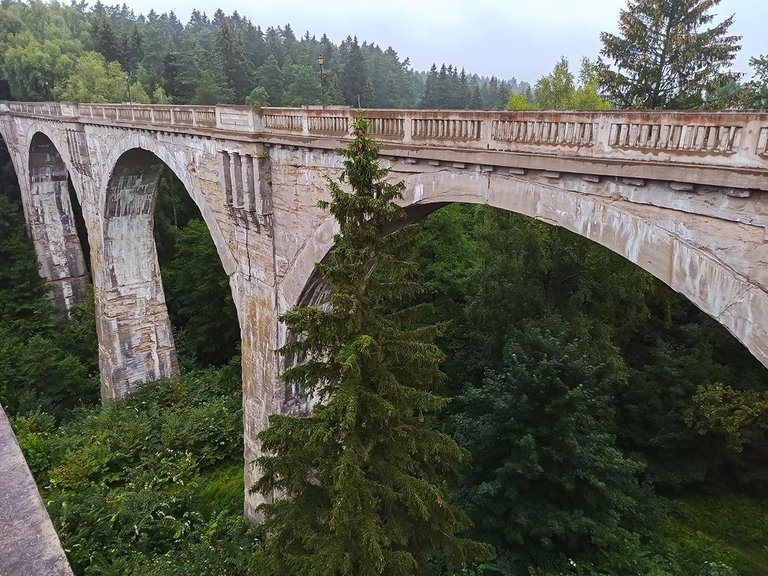
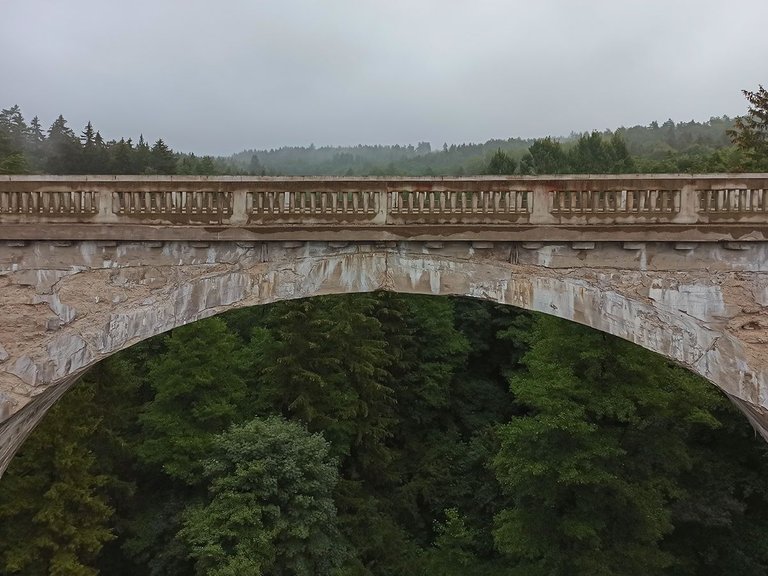
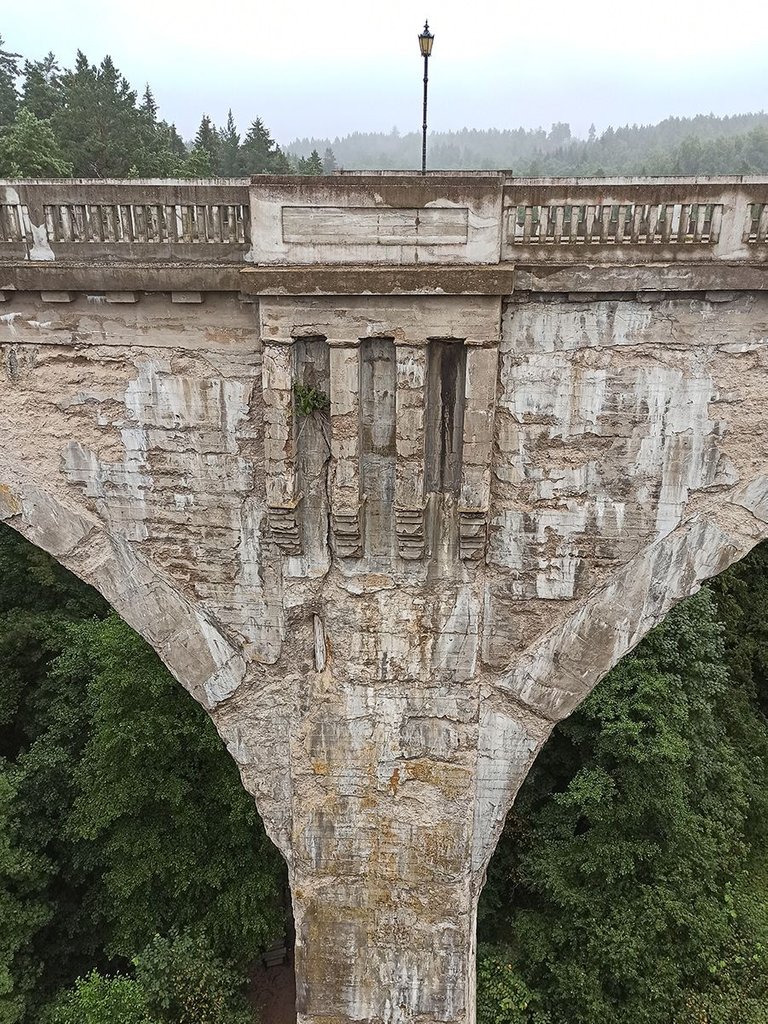
From the northern bridge, you can see the tower we were on a moment ago.
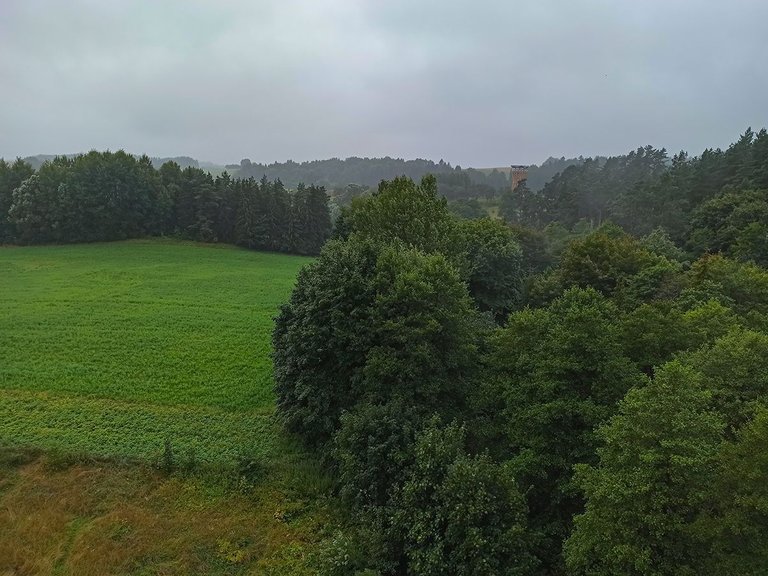
The tips of some trees are at eye level.
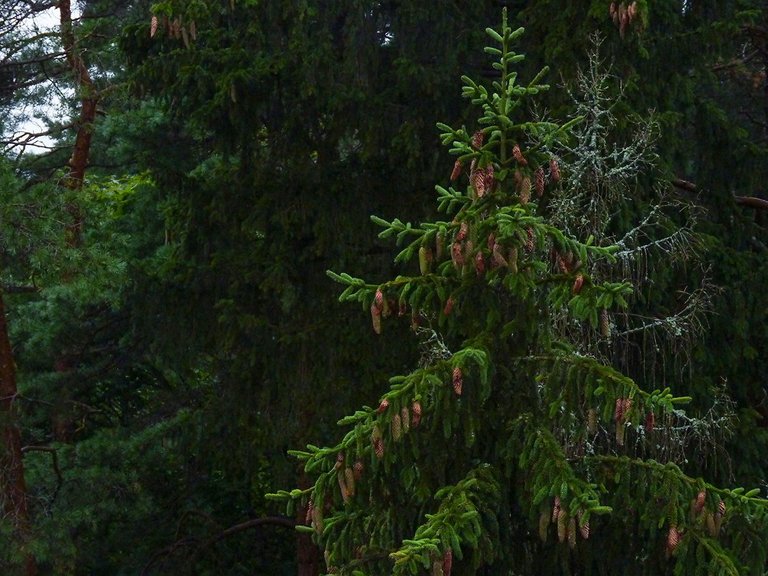
Before I left the bridge, I took one last look down at the muddy waters of the small Błędzianka river. What a head spin!
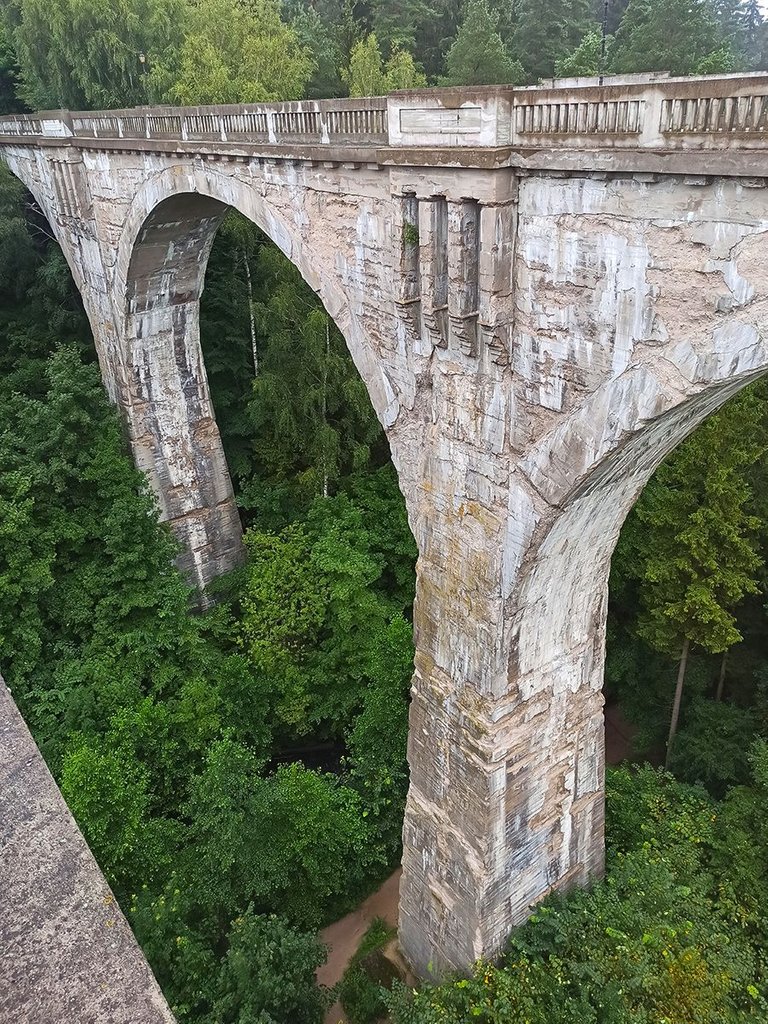
You can descend to the bottom of the valley along a steep path leading through the forest.
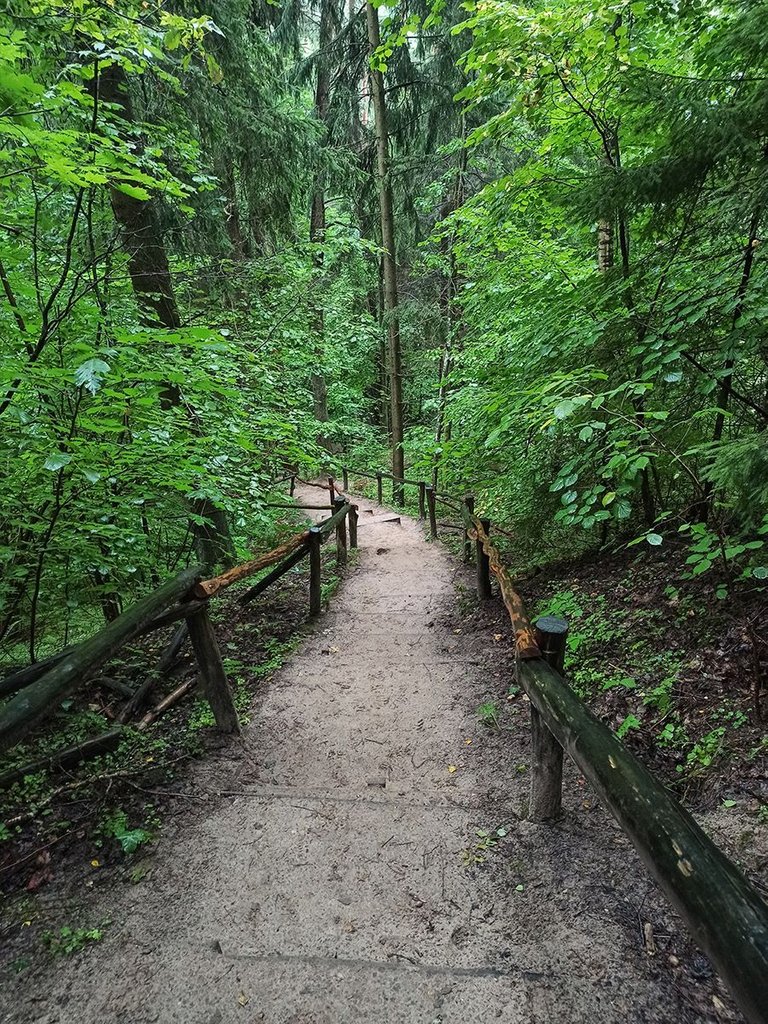
The building viewed from below is also very impressive. The area is crossed by a network of tracks perfect for a walk.
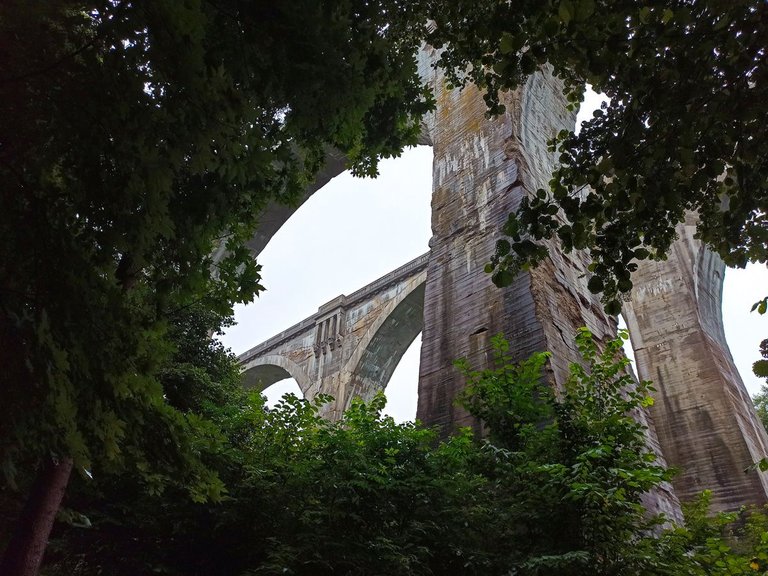
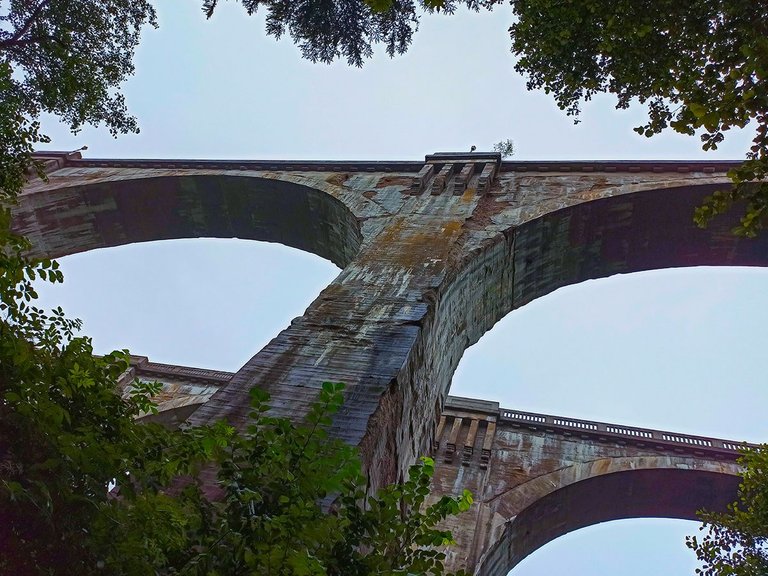
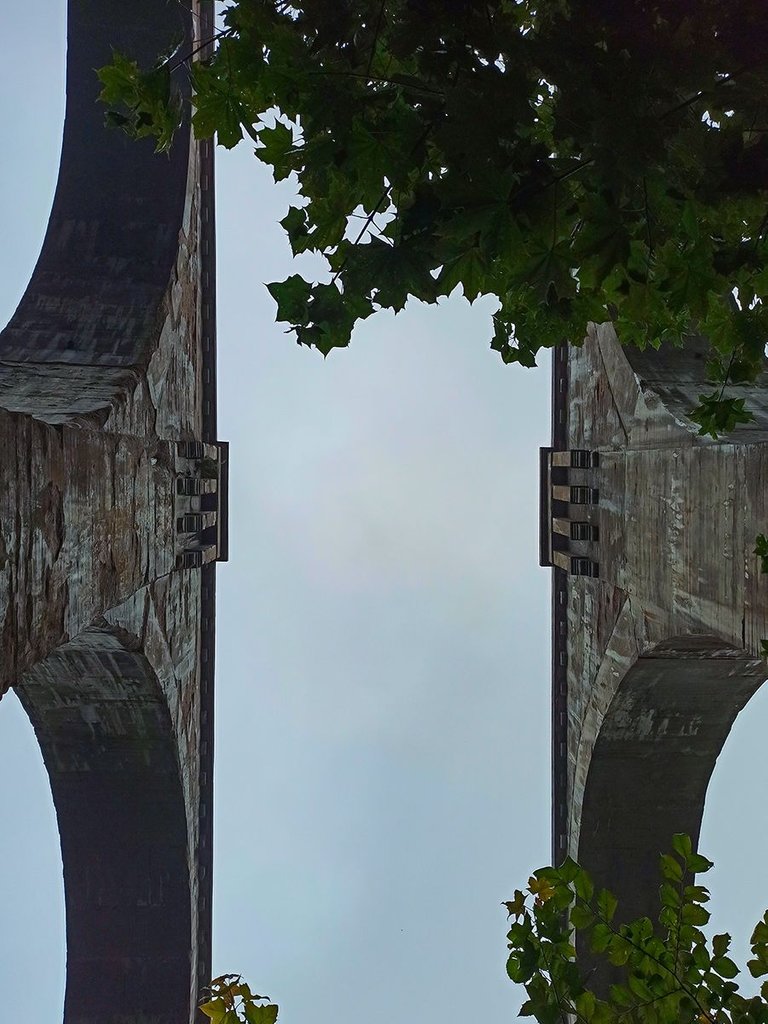
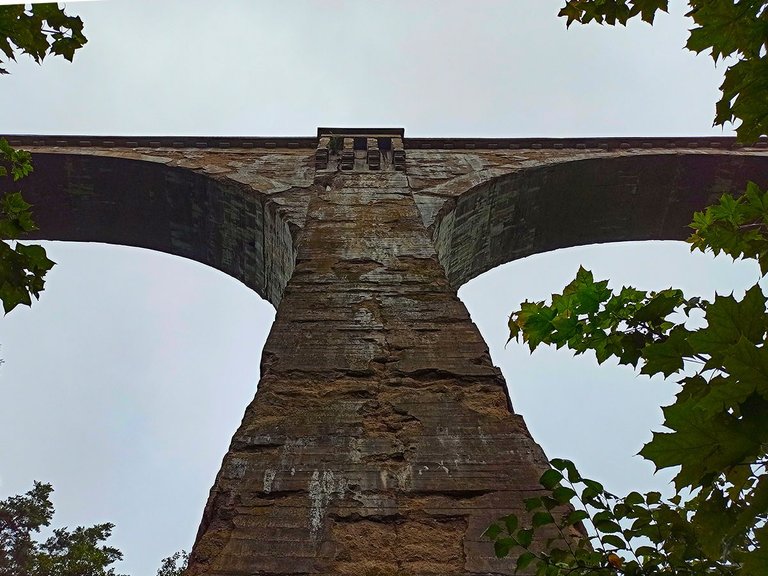
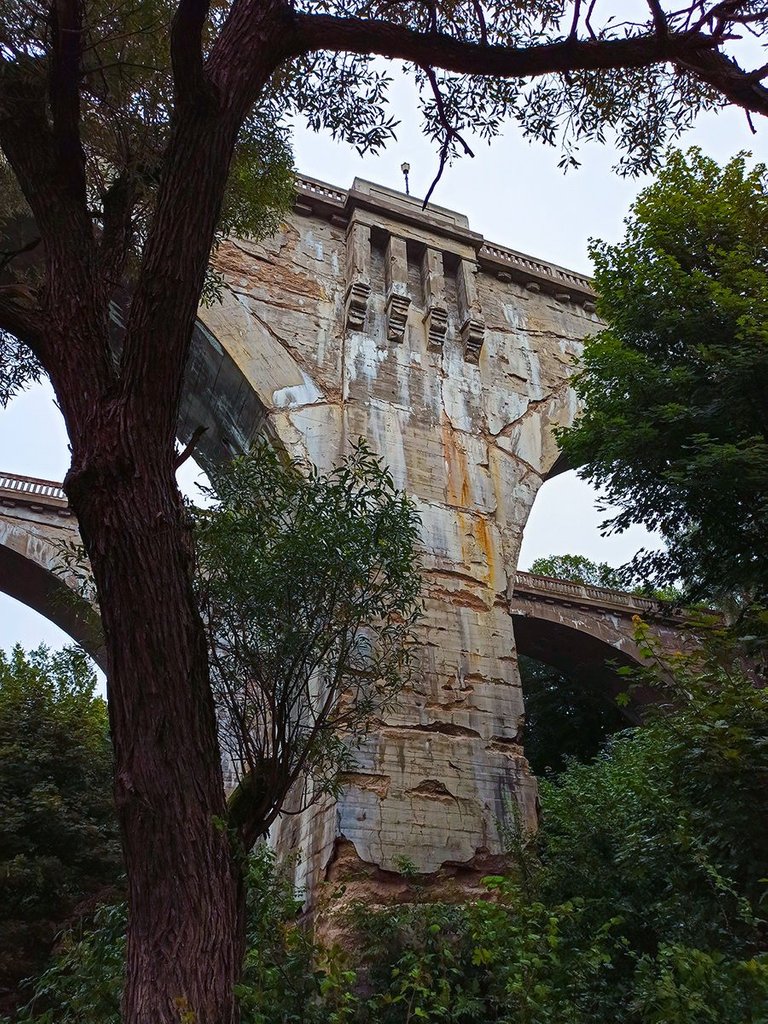
The bridges in Stańczyki are undoubtedly one of the unique tourist attractions for Poles themselves - we do not have many such structures here. Viaducts reflect a little the complex history of these lands. And the nature of the rapid changes in the first half of the 20th century. An Italian project carried out by German builders, partially devastated by the Soviets, and finally owned by Poland. Welcome to Eastern Europe :)
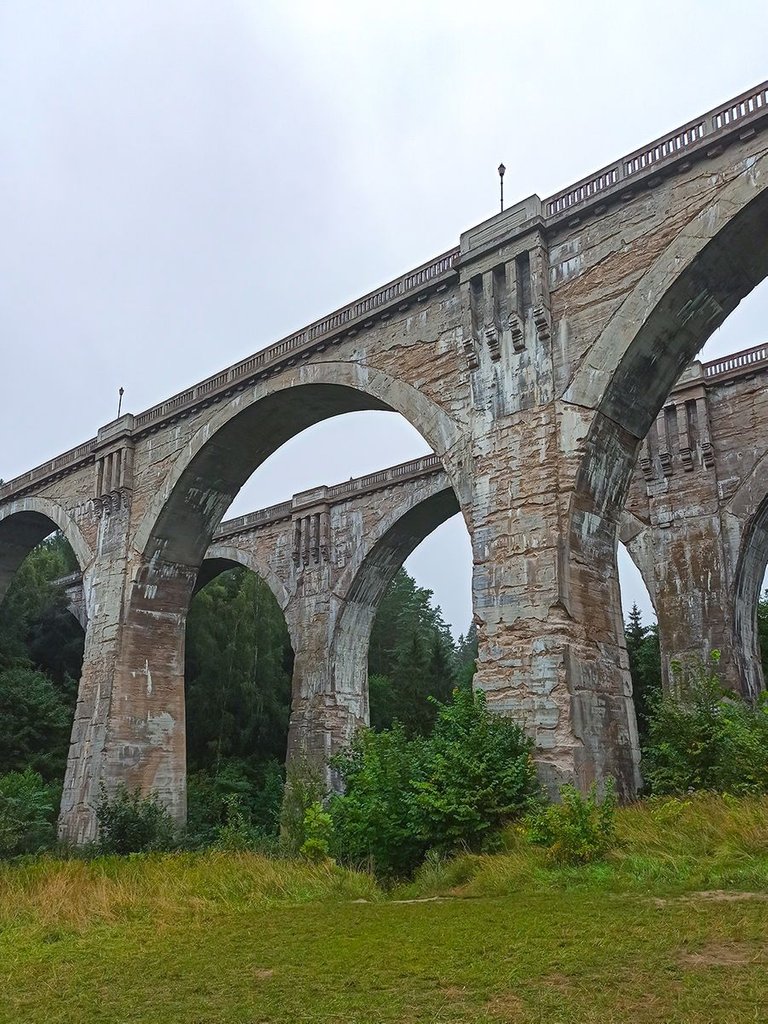
Getting into the car, I cast a farewell glance towards the viaducts. It is probably the most depressing photo that I managed to take during the whole vacation;) Fortunately, my mood was completely different!
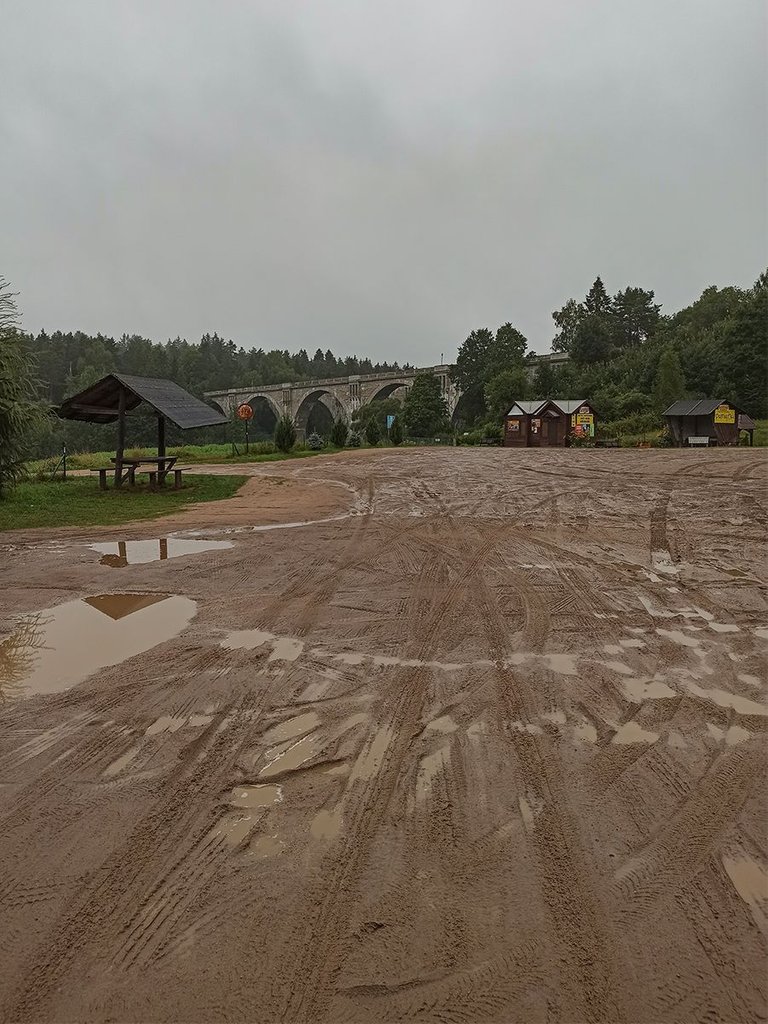

I had no idea there is this fascinating piece of engineering in Poland. Been based in Krakow for some time already but I should plan a trip to the north too. Would love to see this place. And Gdanks :)
@tipu curate
Upvoted 👌 (Mana: 22/82) Liquid rewards.
Honestly, I only started getting to know the north of Poland a few years ago. Gdańsk is beautiful, but I've only been once... what a shame.
Daily Travel Digest #1297.
Become part of our travel community:
- Join our Discord
- Learn more about our travel application
Hiya, @LivingUKTaiwan here, just swinging by to let you know that this post made it into our Top 3 in Your post has been manually curated by the @pinmapple team. If you like what we're doing, please drop by to check out all the rest of today's great posts and consider supporting other authors like yourself and us so we can keep the project going!Amazing place! Looks very beautiful ❤️🥰😍
thank you 🙂
❤️🥰😍
Congratulations, your post has been added to Pinmapple! 🎉🥳🍍
Did you know you have your own profile map?
And every post has their own map too!
Want to have your post on the map too?
Hi @astinmin, your post has been upvoted by @bdcommunity courtesy of @rehan12!
Support us by voting as a Hive Witness and/or by delegating HIVE POWER.
JOIN US ON
The rewards earned on this comment will go directly to the person sharing the post on Twitter as long as they are registered with @poshtoken. Sign up at https://hiveposh.com.
very beautiful ❤️
Thank you 🌻